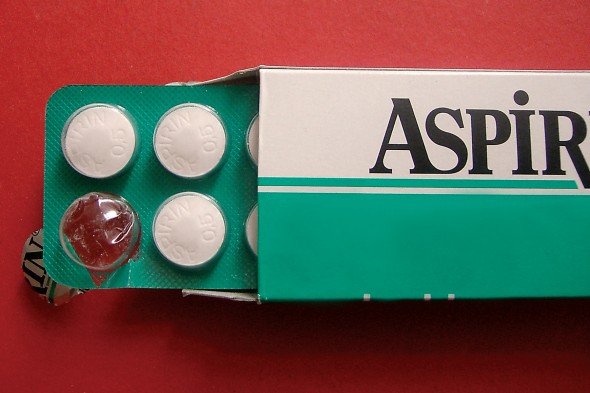What’s the best aspirin dosage to prevent heart attack?
 UI Health is participating in a nationwide study to determine if low-dose or regular strength aspirin is better for preventing heart attack and stroke in people with heart disease.
UI Health is participating in a nationwide study to determine if low-dose or regular strength aspirin is better for preventing heart attack and stroke in people with heart disease.
Most of the 15.4 million Americans with heart disease take one aspirin daily as recommended by physicians: either regular-strength (325 mg) or low-dose (81 mg). But there is conflicting evidence about the potential benefits and risks of the different doses, particularly the chance of gastrointestinal bleeding with regular-strength aspirin.
“We really don’t know whether low dose or higher adult dose of aspirin is best for preventing heart attacks,” said George Kondos, professor of medicine and vice chair for clinical affairs in the College of Medicine.
As a member of the Chicago Area Patient Centered Outcomes Research Network (CAPriCORN), UI Health is part of a $14 million study, called ADAPTABLE (Aspirin Dosing: A Patient-centric Trial Assessing Benefits and Long-term Effectiveness), funded by the Patient-Centered Outcomes Research Institute.
The study will compare the benefit and harm of taking either low-dose or regular-strength aspirin daily for 20,000 people who have had a heart attack or significant blockage of coronary arteries. The study will be enrolling patients over 24 months, and follow them up to 30 months after enrollment.
The aspirin study will be the first of its kind to use the national research network, said Denise Hynes, professor of public health in medicine, informatics director for the Center for Clinical and Translational Science and principal investigator for CAPriCORN at UI Health.
To do a nationwide study like ADAPTABLE, it’s important that all participating institutions use the same research procedures and data infrastructure, she explained.
“The beauty of the study is that through the data infrastructure, we also have access to participant health records, so we can look both backwards and forwards to track patients after they’ve enrolled to see if there are any instances of bleeding that might be associated with the aspirin,” Kondos said.
“We believe aspirin is likely beneficial for preventing heart attacks, but we also know that higher doses can increase the risk for bleeding, so having information on this is crucial.”
